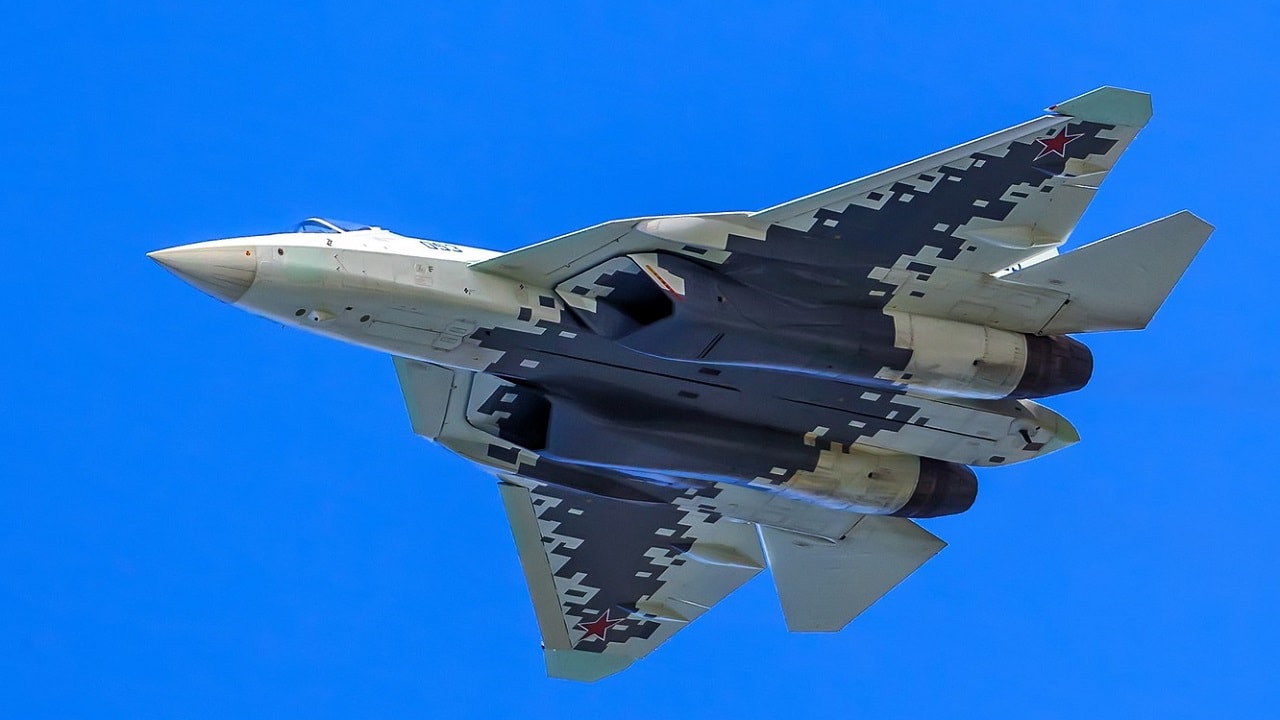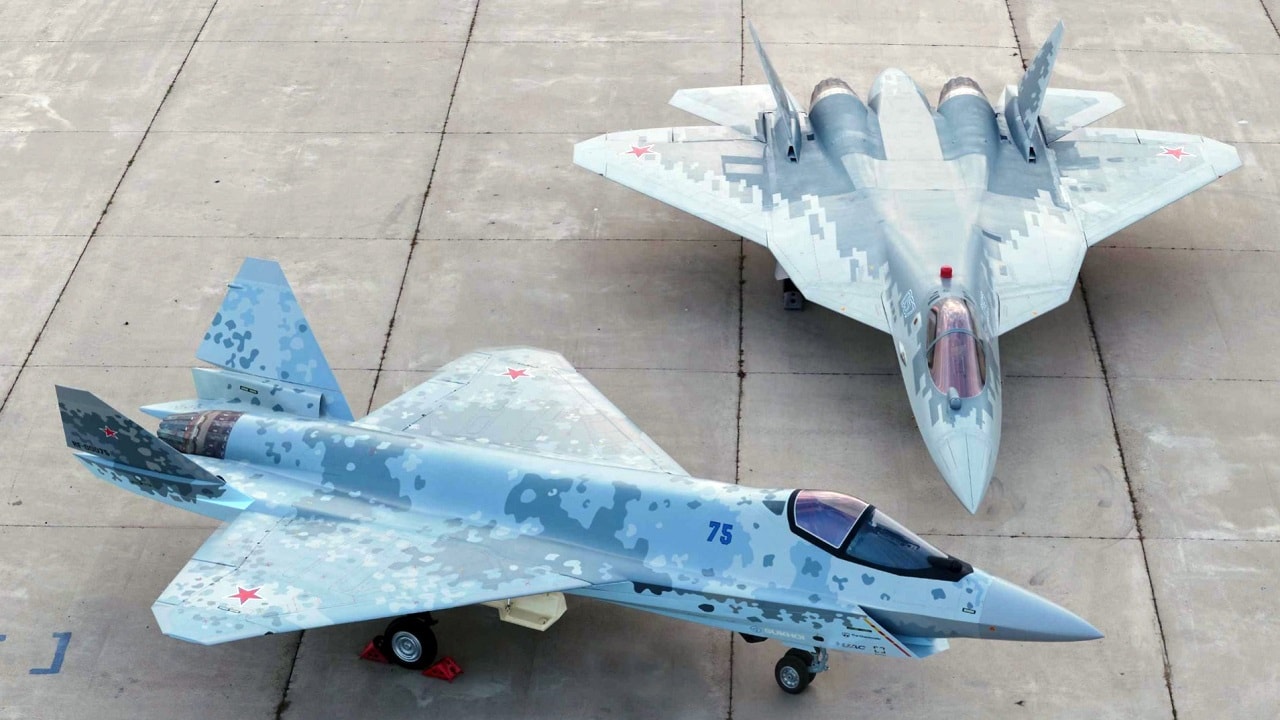Article Summary: India’s long-standing defense ties with Russia have led to speculation about whether it will acquire the Su-57 Felon stealth fighter.
Key Point #1 – While India has collaborated with Russia on weapons programs like the BrahMos missile and Su-30MKI, recent shifts suggest a pivot toward Western technology.
Key Point #2 – U.S. military sales to India, including P-8 Poseidons, Apache helicopters, and potential F-21 fighters, complicate any Su-57 deal. Additionally, the U.S. previously waived sanctions over India’s S-400 purchase but may not be as lenient with the Su-57. As India balances between Russia and the U.S., its next fighter jet acquisition could reshape global defense alliances.
Will India Buy Russia’s Su-57 Fighter Jet? The Geopolitical Risks
The slow yet continued production of Russia’s 5th-generation Su-57 Felon could lead to the possibility of some controversial foreign military sales, given the size and scope of Russia’s international weapons sales.
It certainly seems possible, for example, that India might acquire the Su-57, mainly because initial plans to build a specially configured F-16 variant for the Indian military seemed to stall or reach an impasse.
The unique Indian variant of the F-16, the F-21, included several specific advanced technologies tailored for India.
However, plans to deliver the aircraft and build some elements in India have not come to fruition.
Indian Su-57 Felon?
India may hesitate, given that the Su-57 remains largely untested.
There are no reports of Su-57 Felon combat success, and Russia is well known for its industrial production capacity challenges.
Initial efforts to build impactful numbers of Su-57 have encountered delays, cost concerns, and production complications.
The US military already operates hundreds of F-35s, so even if the Su-57 can challenge the F-35, there simply do not appear to be enough of them to attack in formations across a wide area.
There is also the diplomatic or geopolitical challenge, as India is likely aware that acquiring the Su-57 would greatly complicate the US-Indian cooperative relationship.
This is a significant reason why India might hesitate to acquire the Russian 5th-generation aircraft. India has worked with the US Navy to help engineer its aircraft carriers, is acquiring US Stryker vehicles, and has purchased many US-built aircraft.
Foreign Military Sales data says India has acquired C-130s, C-17s, P-8 Poseidon sub-hunting planes, and a wide range of helicopters, including US-built Chinooks, Apaches, and SeaHawks.
Furthermore, India’s connection to the US was fractured to a small degree years ago when the Indian military acquired Russian-built S-400s.
An interesting essay by Air University suggests that India’s 2021 acquisition of S-400s was designed to change the power calculus in the region, and that India believed Washington would not sanction it.
Following the 2021 Indian acquisition of S-400s, the US waived its established requirement to place sanctions on countries acquiring Russian weapons; the US waived the Countering America’s Adversaries Through Sanctions Act.
Why the S-57 Felon Might Fly for India
In recent months and years, many reports now say India has been progressively pivoting “away” from Russian weapons in favor of US technologies and German submarines, moves which may signal a large and significant “shift.”
An interesting essay in Bloomberg News in December 2024 says that India has been canceling orders of Russian weapons in favor of US systems, and the US undoubtedly values India as a key partner in its deterrence strategy to contain China.

Su-57 stealth fighter. Image Credit: Creative Commons.
Waiving these restrictions and increasing current collaboration may not necessarily suggest the US is not concerned about India’s acquisition of Russian weapons, as the US is acutely aware of India’s long-standing collaborative ties with Russia. Also, the Pentagon may consider India’s acquisition of S-400s as much less threatening than an effort to purchase Su-57s.
The extensive Indian-Russian ties are detailed in a significant 2023 essay in the Journal of Indo-Pacific Affairs.
“India’s current security cooperation with Russia has roots in the solid relations between the Soviet Union and India. Diplomatic ties between India and the Soviet Union were established in 1947, but the relationship deepened in the 1950s and 1960s when India faced border disputes and conflicts with Pakistan and China, leading to increased economic and security cooperation,” the essay says.

Su-75 Checkmate and Su-57 stealth fighter. Image Credit: Creative Commons.
Within this context, India has acquired a massive amount of Russian weapons over the years and has even collaborated with Russia on weapons development projects. The essay in the Journal cites several key Indian-Russian weapons development ventures, including the BrahMos cruise missile, Su-30MKI, and AK-203 assault rifle.
So, is there still hope for a Su-57 Felon sale to India? We will have to wait and see…
About the Author: Kris Osborn
Kris Osborn is the Military Technology Editor of 19FortyFive and President of Warrior Maven – Center for Military Modernization. Osborn previously served at the Pentagon as a highly qualified expert in the Office of the Assistant Secretary of the Army—Acquisition, Logistics & Technology. Osborn has also worked as an anchor and on-air military specialist at national TV networks. He has appeared as a guest military expert on Fox News, MSNBC, The Military Channel, and The History Channel. He also has a Masters Degree in Comparative Literature from Columbia University.

